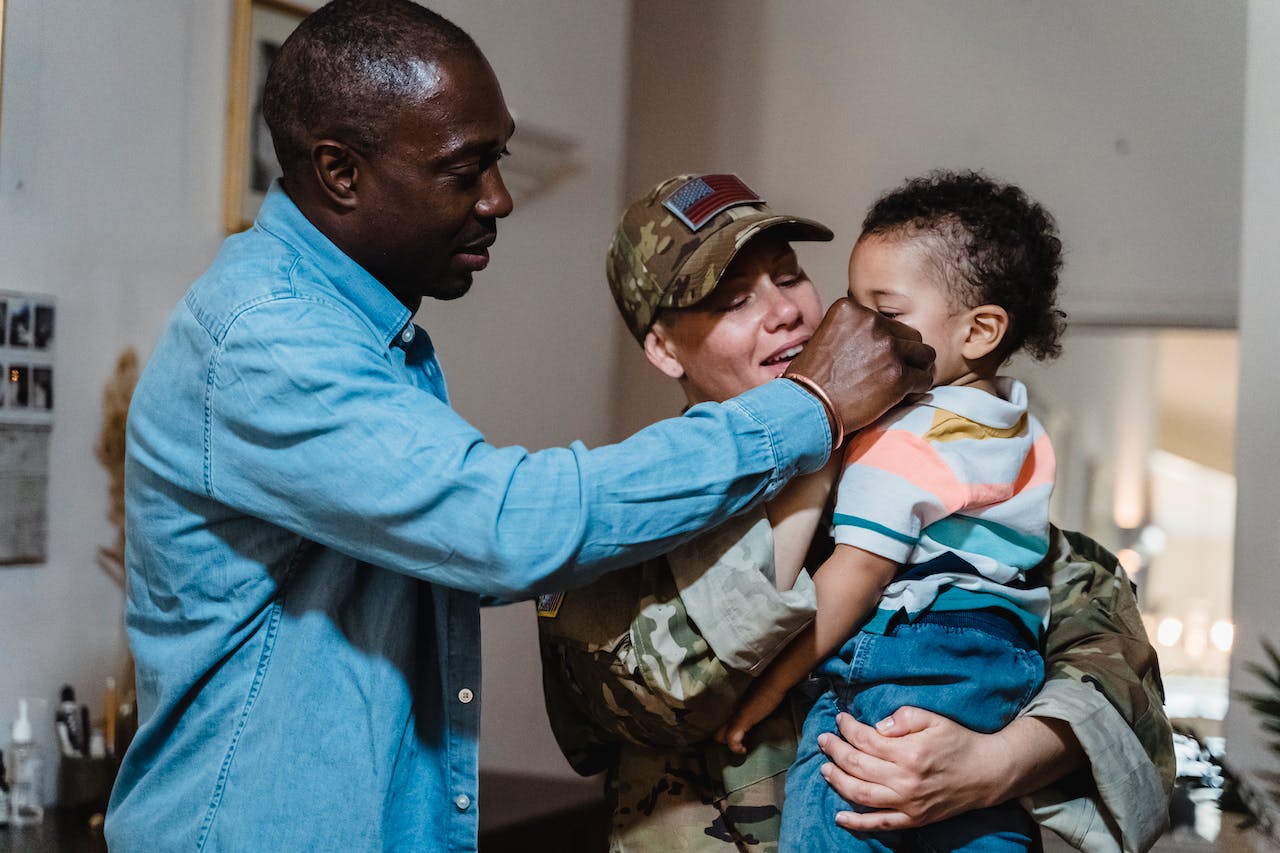The Stresses of Being a Military Spouse or Partner
By: Sushma Bahal, MSW RSW
As published in the Canadian Military Family Magazine (Issue 26), Fall 2016.
Being part of the military presents its own unique occupational challenges and stresses, which can impact both military personnel and their families. Since each family member may react to, and cope with stress in different ways, stress and stress reactions are often exhibited differently by each individual. Military spouses/partners can experience a sense of helplessness over many things, which can all be contributing factors to stress.
Some may feel:
- that they have limited control over their lives, as they may have given up jobs in order to relocate to new areas with their spouses/partners. Some may even accept jobs that pay less, or that are below their educational abilities, as a result of limited job opportunities in their new posting area
- some may feel overwhelmed by having to look after children alone, while spouses/partners are deployed or on exercise for extended periods of time. In the case of blended families, looking after the children of your spouse/partner may have its own stresses, that can create challenges both from a coping and relational perspective for the child and the spouse/partner
- a sense of loneliness, or isolation due to the loss of support from friends and family resulting from frequent postings
- overwhelmed as a result of relocating place or country where French or English are not the primary languages spoken
- constant anxiety about the possibility that your spouse/partner may not return home, or may return with some type of physical disability, and or changed behaviour due to a traumatic event that occurred during deployment
- overwhelmed due to the emotional and physical demands of being a caregiver to a spouse/partner, parent, or child who may have a severe disability
- stressed from activities of daily life
- strain on relationships, resulting from issues anchored in care giving, poor communication, struggles dealing with personal addiction issues, or the addiction issues of a family member, family violence, divorce and infidelity
- overwhelmed by financial strains or struggles occurring for a variety of reasons including: the inability to find appropriate employment, child care, care giving duties, illness or poor money management, and a myriad of other factors
The above list is not an exhaustive list of reasons why people experience stress, however, it does present some examples of the unique challenges that families of military personnel may face.
Stress indicators
Stress affects everyone differently, however there are some common indicators that manifest in our bodies that we should be aware of, such as: frequent headaches, dizziness, chest and stomach pains to name a few. When you feel stressed out about something, take a deep breath and try to get a sense of where on, or in your body you are experiencing stress. For example, you may feel tension in your head, chest or stomach. Eventually, you will consciously be able to link these feelings/ reactions in your body with particular stressors and understand what your stress indicators are. It is important to try and rate your level of frustration in order to begin to identify ways in which to reduce this stress.
For example, my friend and I sat down for dinner one day, when she indicated that she was experiencing pain in her fingers. As a social worker and a close friend, of course I wanted to explore the cause of her discomfort. We established that she had in no way injured herself prior to seeing me, so I turned my attention to her drive, asking her if anything eventful happened. She indicated that the drive was ordinary and that nothing eventful had happened. She began to talk about an issue that she was having with a co-worker, at which point I noticed that she was clutching her fork tightly, while telling her story. She was exhibiting a stress reaction to the issue with her co-worker. Upon reflection, she realized that she was clutching onto the steering wheel very hard, on her way to see me, because she was anxious about how she would deal with the issue the next day. Therefore, knowing how you react in stressful situations can help you to understand some reasons why you may be reacting or feeling a certain way, and will allow you to take healthy steps to reduce your stress. Stress has been linked to many health issues, so it is important to recognize that your stressed, and to keep your stress in check.
Another thing that I tell people is to rate their stress on a scale of one to five. One being not stressed at all, and five being so stressed that you need to see a health care professional. Whether your stress is high or moderate, it is always good to monitor it over a period of time to get a sense of your triggers, its frequency and duration. When your stress increases, you will likely be able to pinpoint when and why it increased if you have been monitoring it. This knowledge can help you take steps towards reducing your stress. Sometimes stress is compounded by a series of interrelated issues, which may be overwhelming and hard to pull apart. Dealing with the most stressful components of the issue initially may help to relieve overall stress. Depending on the severity of the issue, this may require some counseling. It is important to note that stress is experienced by everyone at some point in time, however, the determining factor for when to seek professional help is different for everyone. The key is to understand oneself and realize when the strategies for managing the stress no longer effective, or the duration and frequency become such that they interfere with day to day living.
Having said this, some issues related to stress can be quite easy to identify, and can grow into other problems. In early days of my relationship with my partner, whenever I would ask him how his day was, I would be on the receiving end of an incomprehensible sentence – one which only consisted of a few simple words, sandwiched by acronyms (you know what I am talking about!). Being a civilian, these acronyms made no sense to me. At first I would ask what the acronym meant, and he would explain. I would then forget the acronym. In my view, there are already a lot of acronyms to learn in life…why would I want to remember more? This left me feeling a little resentful. Over the next year and a half, the acronym riddled sentences began to get very annoying. My frustration reached a point where I would ask the dreaded question: “How was your day honey?” and stop listening after hearing the first acronym. Thus began a minor communication problem in our very young relationship. Looking back, if I were to rate my stress on a scale of one to five, I would say that it went from a zero to a one, and then a three. I eventually sat down with him and had a long talk about (what I would consider to be) his over use of acronyms. In the end, we reached a happy medium that has worked for us over the years; I would learn more acronyms, and he would speak in complete sentences, without acronyms. So far, it has worked well for us, with minor hiccups and reminders to each other along the way. Overall, our communication has improved drastically and my level of stress in this area has once again receded to zero.
Ways to reduce stress:
- Book an appointment with a social worker to discuss the source of your stress and work on developing/formulating tools which can help you to minimize/better manage your stress.
- If you feel alone, visit your local Military Family Resource Centre (MFRC) for support. This will allow you to connect with other spouses/partners and make friends with people who are in the same or a very similar situation as you are in. Further, the staff at your local MFRC can help to connect you with programs which may benefit you.
- Find a hobby that you enjoy and if possible, make a small business out of it. For example, if you are a talented/knowledgeable gardener why not advertise your talents and try to create a small gardening business? This helps to develop a sense of purpose and reinforces the importance of your contributions in the community, while making money on your terms!
- If you have a religious/spiritual affiliation reach out to your church, temple, synagogue, etc if possible. Not all bases or areas where you are posted to will have a place of worship that is related to your faith, however, you can still pray by yourself or reach out and find others of your faith to worship with. Prayer is also known to a stress/anxiety reducer due to its repetitive nature.
- Be sure to exercise and do things that will help to relieve stress – swimming, gardening, dancing, yoga, meditation etc. It is well known that endorphins are helpful in combating the effects of stress.
- Aim to have a positive outlook every day. Be grateful!
- Challenge yourself with new activities. For example: try your hand at pottery making or gather some friends together and make an independent film.
- If you are experiencing financial issues, contact your bank or the local SISIP Financial advisor and seek out their support for your unique/personal circumstances.
- Monitor your diet. Eating healthy will keep you happy and energetic and will allow you to spend time on the important things in life.
- If you notice that your energy level has dropped or you are feeling depressed, be sure to see your physician right away to ensure your good health. You can also engage in social activities within your community or at your local MFRC.

